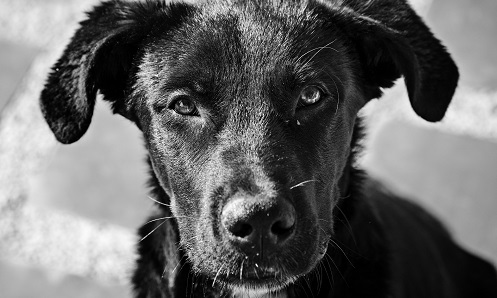The downside of owning a dog is that sometimes you have to deal with the heartbreak of seeing your furry little friend in medical discomfort. Pancreatitis is the most common pancreatic condition and it can affect dogs of any age. It’s characterized by a mild to severe inflammation of the pancreas. In chronic cases, it can be tricky for owners to detect because often times the dog will show no symptoms. In acute cases, it is usually more severe and it typically presents with vomiting or diarrhea. The pancreas is an integral cog in the digestive system, so it’s natural for an owner to wonder what to feed a dog with pancreatitis. Adjustments in the diet are necessary for your pup to make a recovery or in chronic situations, to sustain a comfortable life. It’s also important for you as an owner to understand the ins and outs of your dog’s pancreatic condition in order to properly care for them.
Understanding Pancreatitis
The Pancreas is responsible for releasing enzymes that facilitate digestion. These enzymes only become active once they reach the small intestine. However, when the pancreas is not working correctly, the become active immediately which begins damaging pancreatic tissues and other nearby organs.
Causes and Symptoms of Pancreatitis
Understanding the causes and signs of Pancreatitis is extremely important because it can be a dangerous and potentially life-threatening condition if not treated promptly. Do not substitute home remedies for a trip to a veterinarian if you suspect pancreatitis.
Causes
 There are a number of factors that lead to the development of pancreatitis, however, it’s not unheard of for it to occur for no apparent reason. Here are some of the common culprits:
There are a number of factors that lead to the development of pancreatitis, however, it’s not unheard of for it to occur for no apparent reason. Here are some of the common culprits:
- High-fat diet
- Large single meals eating schedules. When dogs only eat one or two large meals a day, it puts a strain on their digestive system. It’s recommended to spread out feedings into moderate portions.
- Diabetes
- Hypothyroidism
- Ingestion of toxins
- Obesity and overeating
- Eating anything, as opposed to a strictly regimented diet
Symptoms
In acute cases it’s important to act fast — that’s where recognizing the signs comes into play. If you notice several of the following symptoms at once, seek medical attention immediately:
- Vomiting
- Diarrhea
- Fever
- Hunched Back
- Abdominal Pain
- Bloating
- Lethargy
- Loss of appetite
So What Do You Feed A Dog With Pancreatitis?
Since Pancreatitis is so closely related to the diet and digestion it stands to reason that dietary adjustments play a huge role in recovery and management. So what can you feed a dog with pancreatitis? Many dog owners who have experience with this condition will say that homemade diets are best for pancreatitis. It’s the only way to reliably marshall the ingredients your dog is ingesting. It’s all about a healthy balance of carbs, protein, and fat. Specifically, half carbs, half-low fat protein.
Your pups protein intake should be drawn from lean boiled meats (skinless/boneless chicken, turkey, goat, rabbit), eggs and to a lesser degree, non-fat dairy. An excellent supplement for fat is healthy fat, such as Omega-3 fatty acids. Avoid fatty meats such as pork, lamb, and some ground beef.
Your dog should draw its carbohydrates from bland starches such as oatmeal, barley, quinoa, rice, potatoes, pumpkin and other low-fat sources.
How to Prevent Pancreatitis
 Anyone who’s had to watch their dog suffer the pains of pancreatitis will tell you it’s not something they want to experience again. Luckily there are ways to prevent it from happening — not surprisingly they mostly involve dietary adjustments.
Anyone who’s had to watch their dog suffer the pains of pancreatitis will tell you it’s not something they want to experience again. Luckily there are ways to prevent it from happening — not surprisingly they mostly involve dietary adjustments.
If your dog is overweight or is an overeater, he is more likely to develop the condition. Weight loss and meal portion control are the first steps to a healthy digestive system. Avoid high-fat diets and buying big supermarket brand dog food. They are packed with by-products and preservatives that are harmful to the digestive tract. Steer clear of low-protein diets. Instead focus on feeding them an optimal amount of protein, rather than taking in more than their system can handle. Introduce fish oils and omega-3’s into his diet to reduce cholesterol and triglycerides in their blood. Avoid giving them fatty treats such as jerky and pig’s ear.
Dogs are curious little domestic scavengers by nature, so keep your trash cans sealed tight and don’t leave any fatty human food lying around.
The prognosis for pancreatitis is pretty good, but only if you act immediately. It can be life-threatening if you prolong treatment. The risk of recurrence is high, so it’s up to you as an owner to work with your vet and your dog—no matter how picky he may be—to make the appropriate lifestyle changes.




